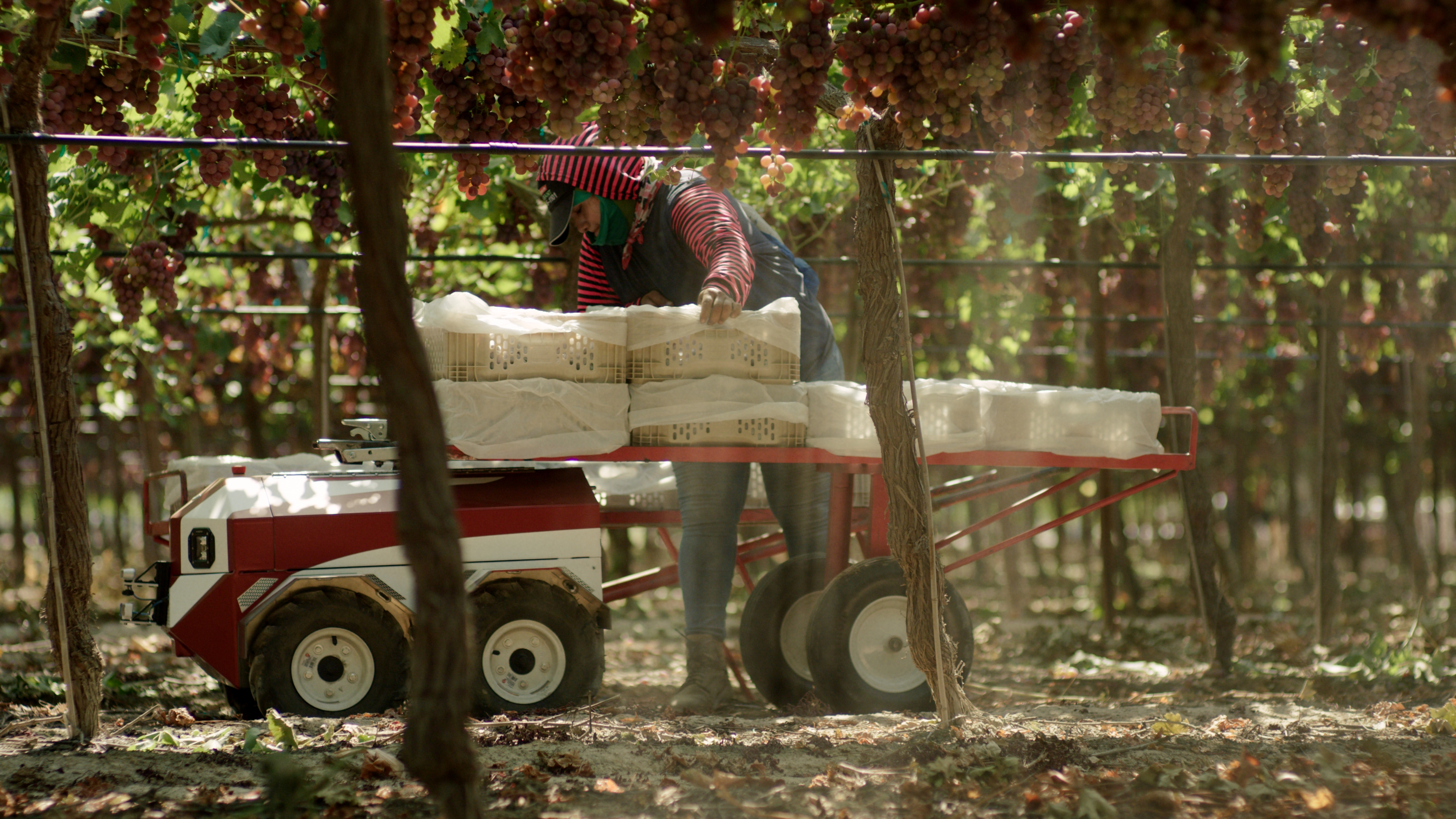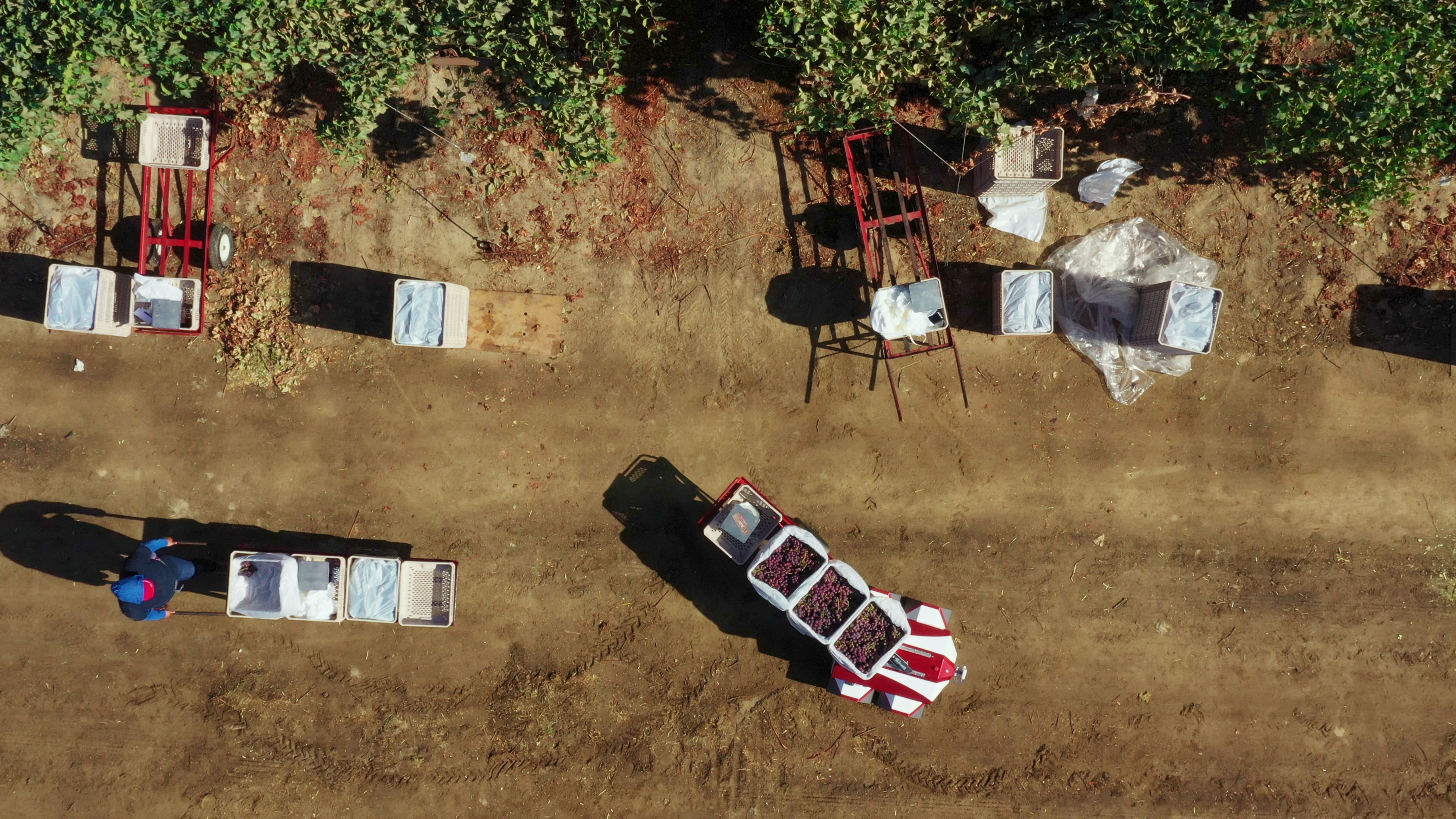When people ask me which robotics categories are poised for the biggest growth, I often point to agriculture. The technology already has a strong foothold in places like warehouse and logistics, but it’s impossible to look at the American – and global – farming community and not see a lot of potential for human-assisted automation.
The category still seems fairly wide open — but not for lack of interest. There are a number of companies both large and small carving out niches in the category. For now, at least, it seems there’s room for a number of different players. After all, needs vary greatly from farm to farm and crop to crop.
Santa Monica-based Future Acres is launching today, with plans to tackle grape picking. An outgrowth of Wavemaker Partners — the same firm that gave the world burger-flipping Miso Robotics — the startup is also announce its first robot, Carry.

Image Credits: Future Acres
“We see Carry as a kind of harvesting sidekick for workers. It’s an autonomous harvesting companion,” CEO Suma Reddy tells TechCrunch. “What it can do in the real world is transport up to 500 lbs. of crops in all terrain and all weather. It can increase production efficiency by up to 80%, which means it pays for itself in only 80 days.”
Carry relies on AI to transport hand-picked crops, working alongside humans rather than attempting to replace the delicate picking process outright. The company is expecting that farms will purchase multiple machines that can work in tandem to speed up their process and help reduce the human strain of moving the crops around manually.

Image Credits: Future Acres
The company is still in early stages, having developed a prototype of Carry. It’s also exploring some partnerships for development. The systems would run $10,000-$15,000 up front, though the company says it’s looking at a RaaS (robotics as a service) model, as a way to defer that cost.
Interest in agricultural robotics has only increased during the pandemic, amid health concerns and labor issues. The company is building on that interest by launching a campaign on SeedInvest, in hopes of raising $3 million, in addition to funding already provided by Wavemaker.
Comments
Post a Comment